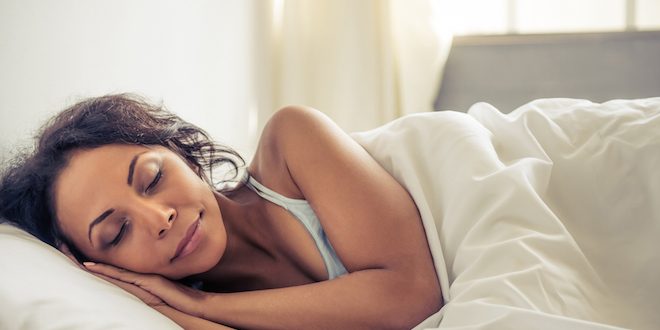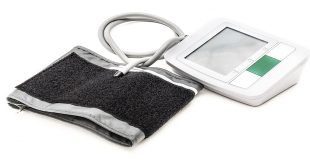The importance of sleep can’t be undermined. Insomnia is a relatively common sleeping disorder, affecting about one-third of the adult population worldwide. Around 10 to 20 percent of adults with insomnia experience severe sleeplessness.
Symptoms of insomnia include having problems falling asleep at night, waking up frequently during the night, having difficulty falling back to sleep or waking up too early in the morning. The common complaints from people affected by poor sleep are: feeling sleepy during the day, falling asleep during meetings or when watching a movie, having problems concentrating and remembering things, feeling irritable or unrefreshed following sleep.
The cornerstone to a good sleep: Sleep Hygiene “What-to-do’s”
- Establish a consistent bedtime routine. This is one of the most important factors in insomnia treatment and maintaining good sleeping habits. Routines may include taking a warm bath or a relaxing walk in the evening, or practicing meditation/relaxation exercises as part of your regular nighttime routine.
- Try to go to bed at the same time every night, and get up at the same time each morning. This includes weekends.
- Get plenty of exercise during the day. The more energy you expend during the day, the sleepier you will feel at bedtime. Just be sure not to engage in vigorous exercise too close to bedtime as that can make it more difficult to fall asleep.
- Avoid stimulants like caffeine and limit alcohol. Both, even when consumed early in the day, can affect sleep and inhibit insomnia treatment.
- Use your bed only for sleeping and sex. Don’t use it to do work or watch TV.
- Avoid large meals late in the evening.
- If you can’t fall asleep within half an hour of going to bed get up and read or do something calming until you feel sleepy.
- Use a relaxation technique regularly. Breathing exercises, meditation and yoga are not insomnia cures, but do lead to a state conducive to sleep.
- Use “white noise” devices to block out surrounding environmental noise.
- Take a hot bath before bedtime. Try a few drops of relaxing oil of lavender in the water.
- Short naps are good. Try to get into the habit of napping for insomnia treatment: ten to twenty minutes in the afternoon, preferably lying down in a darkened room.
- Spend some time outdoors as often as you can to get exposure to bright, natural light. If you are concerned about the harmful effects of solar radiation, do it before ten in the morning or after three in the afternoon or use sunscreen. See my previous blog How to be sun smart.
- Try to give yourself some time - up to an hour - in dim light before you go to sleep at night. Lower the lighting in your house and bedroom. If other members of the household object, wear sunglasses.
Still, it's been weeks and a good night's sleep remains elusive? What are some common over- the-counter medications?
Those containing antihistamine:
- Diphenhydramine (Benadryl®, Unisom sleep®, Sleep-Aid®, Simply Sleep®, Sleep-Eze®): these are sedating antihistamines. Side-effects might include daytime drowsiness, dry mouth, dizziness and memory problems.
- Doxylamine (Unisom-2 SleepTabs®): also a sedating antihistamine. Side-effects are similar to diphenhydramine, including daytime drowsiness, dry mouth, dizziness and memory problems.
Natural Health Products:
- Melatonin: a hormone that helps control your natural sleep-wake cycle. Some research suggests that melatonin supplements might be helpful in treating jet lag or reducing the time it takes to fall asleep — although the effect is typically mild. The most common melatonin side-effects include daytime sleepiness, dizziness and headaches. Other, less common melatonin side-effects might include abdominal discomfort, mild anxiety, irritability, confusion and short-lasting feelings of depression.
- Valerian: supplements made from this plant might reduce the amount of time it takes to fall asleep as well as promote better sleep overall. However, the active ingredient isn't clear and potency can vary. Side effects of valerian supplements might include headache, abdominal discomfort, excitability or uneasiness, and heart disturbances.
A few caveats you should be aware of when considering OTC sleep aids:
- Check with your doctor/pharmacist to make sure the sleep aid won't interact with other medications or underlying conditions. For example OTCs containing antihistamines should be avoided in people who have closed-angle glaucoma, asthma, chronic obstructive pulmonary disease, severe liver disease or urinary retention which can be preceded by a weak urine stream or trouble starting urination.
- Although they can be effective for an occasional sleepless night, tolerance to the sedative effects of antihistamines can develop quickly — so the longer you take them, the less likely they are to make you sleepy. They can leave you feeling groggy and unwell the next day. This hangover effect can lead to poor balance as well as impaired thinking.
- Avoid alcohol: never mix alcohol and sleep aids. Alcohol can increase the sedative effects of the medication.
- Sleep aids are only a temporary solution for insomnia. Generally, they're not intended to be used for longer than two weeks.
Is there any connection between diabetes and poor sleep?
For people with diabetes, out of target blood glucose levels can be the culprit behind your poor sleep. When blood glucose levels are too high, you may experience symptoms such as thirst, frequent urination and feeling tired during the day. Low blood glucose, especially during the night, can cause symptoms such as sweating, nightmares, vivid dreams and headache upon awakening.
Talk to your diabetes care team to adjust your diabetes management strategies. When blood glucose levels improve, you may find your sleep also improves significantly.
 Diabetes Care Community Learn, connect and care
Diabetes Care Community Learn, connect and care



